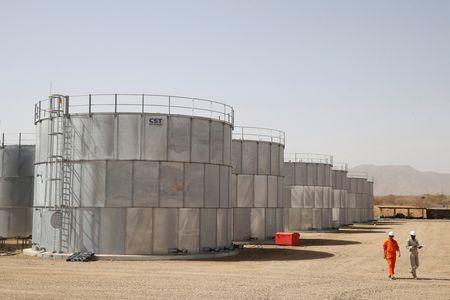By Nqobile Dludla
JOHANNESBURG (Reuters) -South African fashion retailer TFG reported a drop in half-year profit on Friday as inflation hit consumer spending, but said sales had since turned higher as positive economic signals helped buoy demand.
Consumers across TFG’s three regions in Africa, London and Australia have been grappling with high living costs which sapped discretionary spending. This had prompted fears about Christmas trading, traditionally the most lucrative of the year.
However, the group said retail sales across its regions had improved in post-result trade, with TFG Africa’s sales up 8.3% in the five weeks from Oct. 1 after easing 0.1% in the first half and TFG London sales also turning positive.
“Whilst there are still reasons for caution, I believe that there is increasingly reason to believe that we may quite possibly be entering a more customer-friendly cycle than we’ve seen for some time,” TFG CEO Anthony Thunstrom said.
This is “as the cost of living pressure eases and the two-pot pension reforms provided much needed liquidity injection to our market”, he added.
Shares in the company, which also sells homeware, shoes and cellphones, were up 4.4% by 1122 GMT.
TFG, owner of the Foschini and Markham clothing stores, said headline earnings per share in the six months to Sept. 30 fell to 371.6 cents, while operating profit before finance costs fell by 3.4% to 2.5 billion rand.
The retailer, which also operates Whistles stores in the UK and Johnny Bigg in Australia, reported a 2% decline in sales to 25.9 billion rand ($1 billion).
Looking ahead, the retailer is looking to expand into adjacent categories as its businesses compete for less than 10% of the South African wallet, Thunstrom said, without giving details.
It expects its value business turnover to grow to 16 billion rand in 2029 from 10 billion rand in financial year 2025 as it continues to invest in value brands.
Turnover at its homeware and online businesses Bash is seen growing to 10 billion rand and 4.7 billion rand from 5.4 billion rand and 2 billion rand, respectively.
($1 = 17.4200 rand)
(Reporting by Nqobile Dludla; Editing by Christina Fincher, David Goodman and Jan Harvey)










